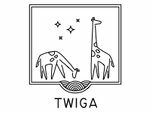@iLabAfrica, a research and innovation center at Strathmore University held a breakfast forum on May 2nd,2019 themed: Transforming Agricultural Insurance in Africa using Climate Data at the Strathmore Business School. The forum was a platform to discuss and provide insights on effective implementation of products that are key in reducing farmers’ vulnerability to weather extremes.
Partnering with the European Union on the TWIGA (Transforming Water, Weather, and Climate information through In situ observation for Geo services in Africa) project, @iLabAfrica is working on a project aimed at providing unavailable geo-information on weather, water and climate for sub-Saharan Africa by enhancing geo-data based on information from satellite and developing related information services that answer the needs of African stakeholders. Dr. Joseph Sevilla, the Director of @iLabAfrica commented that this is a research project involving 16 partners; the lead team being the Delft University of Technology in the Netherlands. The Kenyan partners include Strathmore University (SU), the Kenya Meteorological Department (KMD) and Trans-African Hydro-Meteorological Observatory (TAHMO).
During the breakfast forum there were representatives from insurance companies, Insurance Regulatory Authority, Kenya Meteorological Department and researchers who were keen on the TWIGA project.
Weather stations across Sub-Saharan Africa
TAHMO is targeting to set up 20,000 weather stations across Sub-Saharan Africa. Together with the KMD, TAHMO has already set up over 100 stations in Kenya with support from various development partners including the European Commission, United States Agency for International Development (USAID), the Global Resilience Partnership, the World Bank and International Business Machines Corporation (IBM).
Strathmore University’s @iLabAfrica is involved in two main deliverables; data analytics to create weather index-based insurance products and develop a mobile application that farmers will use to access the relevant information to boost the farming activities. “The data will help insurers inform the farmers on the best crop varieties based on soils and the rainfall patterns. Insurance firms will then use the data to tailor their policies based on these factors to reduce possibilities of huge crop losses,” said Dr. John Olukuru, the Head of Data Science and Analytics and Director of the Risk Management Centre.
In the TWIGA project, @iLabAfrica will analyze the data from the hydro-meteorological stations across Sub-Saharan Africa. On the other hand, KMD will provide additional data from their existing weather stations with a time series from more than 5 decades. This will ensure accurate and continuous data collection hence credible analytics which is much needed for agriculture insurance products.
Accuracy of data
Additionally, @iLabAfrica will utilize the data from the stations and satellite data collected by TWIGA to develop an index based insurance cover not only based on rainfall (single index) but also soil moisture (multi-index). It was observed that the main challenge today is the accuracy of the data. Actuaries need correct validated data to accurately develop risk models. Accurate data also gives credibility to the insurance products hence the reinsurance company is ready to take up some risk and support the insurance companies. This will be key for actuaries advising the insurance companies.
Insurance Regulatory Authority (IRA) has already been engaging stakeholders to develop a weather-based insurance index as it did with the World Bank. It encouraged partners – academia, insurance companies, World Bank, USAID and other research companies like IBM to join hands to have a central repository of knowledge at Strathmore University to provide thought leadership.
Climatic risk
During the forum, it was also observed that small-scale farms, particularly in Africa, are vulnerable to climatic risks and lack access to insurance and other financial tools to mitigate harsh climatic changes which are a threat to their farm produce. Additionally, the produce mainly relies on rain-fed agriculture that has become highly vulnerable to weather shocks.
Speaking on ways in which the Government of Kenya aids in improving the status of farmers and their operations, Mr. Philip Thigo, the Lead, Data and Innovation at the Office of the Deputy President of Kenya, said “The government has partnered with the National Aeronautics and Space Administration (NASA) in harnessing data to help improve agriculture.”

